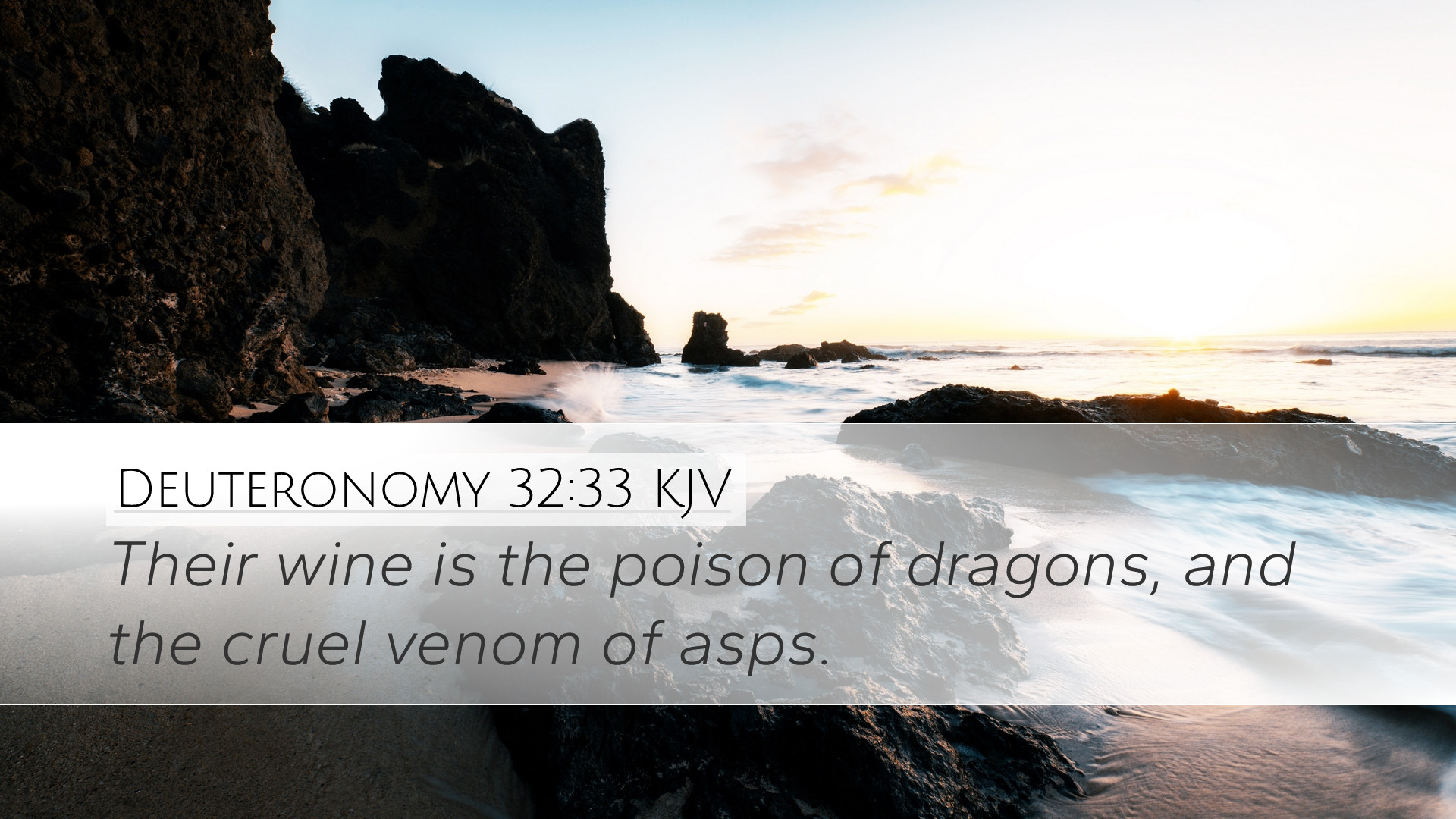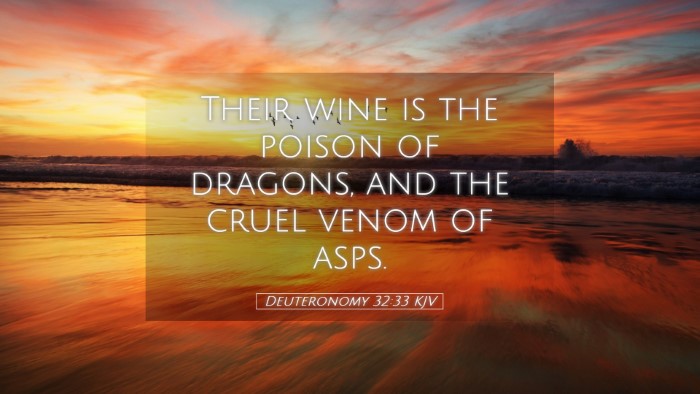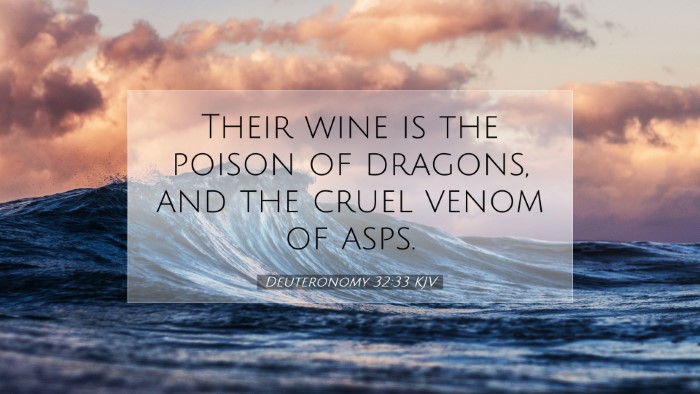Commentary on Deuteronomy 32:33
Deuteronomy 32:33 states, “Their wine is the poison of dragons, and the cruel venom of asps.” This verse is part of the Song of Moses, a poetic reflection on Israel's history and God's dealings with His people. It addresses the consequences of turning away from God and highlights the dangers of indulging in sin.
Context and Background
The Song of Moses, found in Deuteronomy 32, serves as a reminder of the covenant between God and Israel. Moses calls upon heaven and earth as witnesses. Within this context, he emphasizes the need for vigilance against idolatry and moral decay. The reference to wine is symbolic of spiritual intoxication and doctrinal corruption.
Exegesis and Interpretation
In examining the text, various public domain commentators offer profound insights:
-
Matthew Henry:
Henry highlights that "the wine" in this verse symbolizes the false doctrines and seductive teachings that lead people away from the truth of God. Just as wine can intoxicate and impair judgment, so can these teachings lead to spiritual blindness. The imagery of poison indicates a dangerous substance—appealing but ultimately harmful.
-
Albert Barnes:
Barnes affirms that the phrase "cruel venom of asps" serves to underline the severity of the sinful influences that infiltrate the community. He notes that an asp's venom is lethal, symbolizing how destructive false teachings can be to the soul. The combination of these two metaphors suggests the allure and the danger intertwined in temptation and sin.
-
Adam Clarke:
Clarke elaborates on the cultural implications of the verse. He relates the metaphor of poison to the spiritual disobedience of Israel, stressing the consequences of ignoring God's commands. He emphasizes that those who partake in this “wine” will suffer from its effects, experiencing spiritual death and separation from God.
Theological Implications
This verse offers numerous theological insights that are meaningful for pastors and theologians:
-
Spiritual Discernment:
The metaphor of poison underscores the importance of discernment in spiritual matters. Believers are called to scrutinize teachings and practices, ensuring they align with biblical truth.
-
The Consequences of Sin:
The verse serves as a warning about the inevitable consequences of sin. Just as poison affects the body, sin corrupts the heart and mind, leading to spiritual decay.
-
Idolatry and Its Effects:
The reference to venomous snakes is a poignant reminder of how idolatry can lead to suffering and destruction. This serves as a caution for current believers to avoid the ‘idols’ of modern life that lead them away from a relationship with God.
Applications for Modern Believers
For contemporary Christians, Deuteronomy 32:33 carries significant application:
-
Awareness of False Teachings:
Believers are urged to remain vigilant against teachings that promise freedom but lead to bondage. Christians should groundedly engage with Scripture to differentiate truth from error.
-
Community Responsibility:
The call to community involves holding one another accountable. Churches should foster environments where members can discuss and challenge malicious teachings and practices that mislead.
-
Personal Reflection:
Individuals are encouraged to introspect on what they allow to influence their spiritual walk. This verse invites believers to assess their ‘spiritual diet’—what they consume in terms of teachings, media, and relationships.
Conclusion
Deuteronomy 32:33 is a provocative verse that provides a solemn reminder of the dangers of spiritual compromise. The insights from ancient commentators like Henry, Barnes, and Clarke remain relevant for today’s believers, highlighting the need for a vigilant faith. As God’s people, engaging with the Word and fostering a community of accountability is essential to avoid the venomous influences that can poison the soul.


